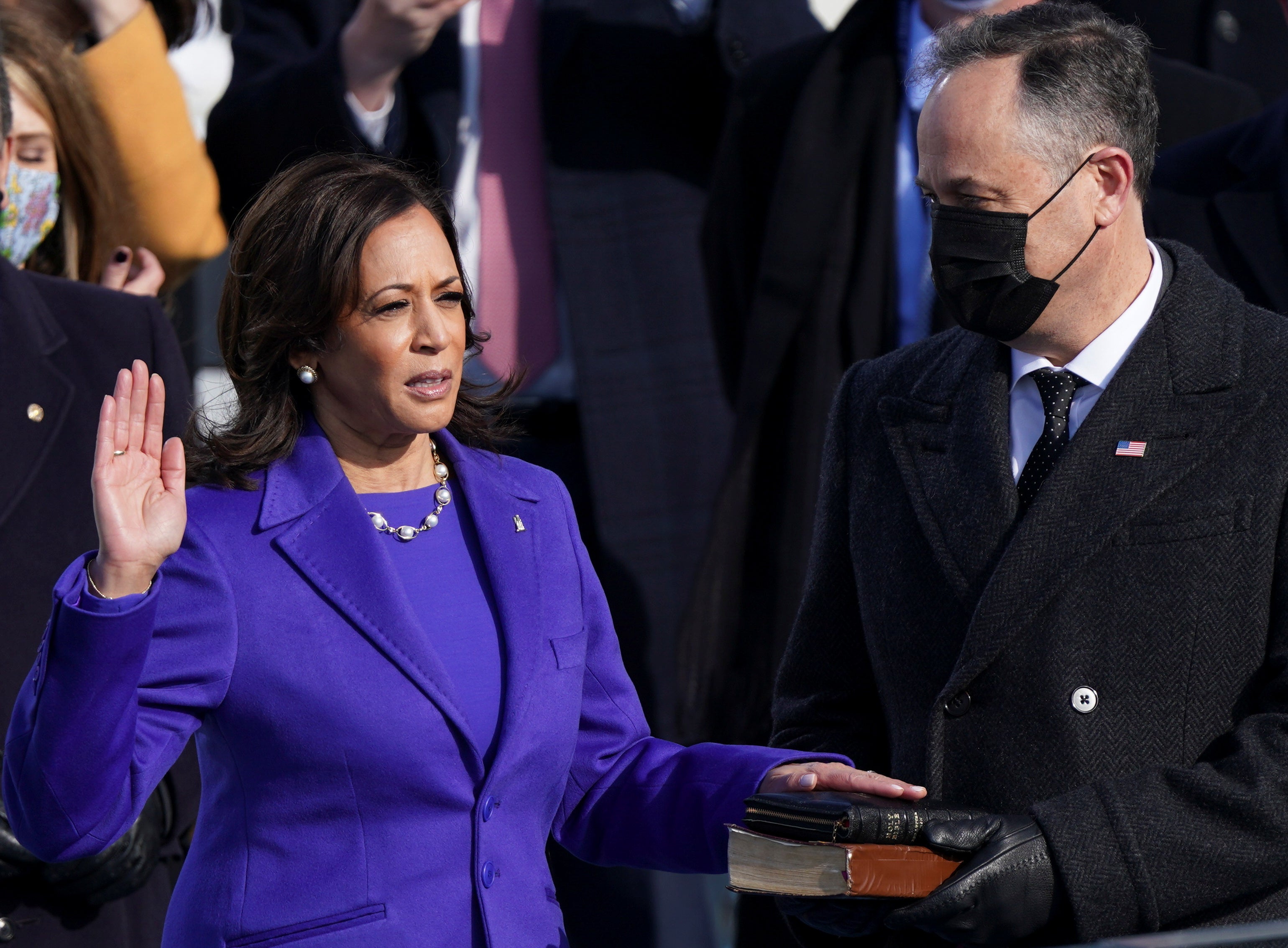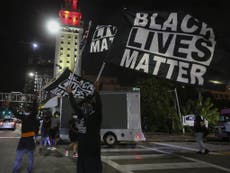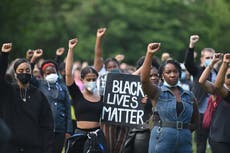Like Kamala Harris, I have Black and Indian heritage – which makes some Indians very uncomfortable
The cure for racism isn’t in elevating a few individuals who then become the exception, but in ensuring equality is served across the board


The inauguration of Kamala Harris as vice-president of the United States was an historic moment. Putting politics aside, much has been made of the fact that she is the first woman of both Black and Indian heritage to become vice-president.
Since she was announced as Joe Biden’s running mate, she has had the support of a lot of the Indian diaspora, who’ve claimed her as their own. There were even Hindu prayers and ceremonial rites being held just before Americans cast their ballots in November.
However, watching the ceremony last week, I couldn’t help feeling that this moment, in itself, will not be a turning point in the way many Indians view Black people generally. Like Kamala, I have both Black and Indian heritage, and I predominately identify as Black.
Over recent weeks I’ve seen some Indians really taking pride in Kamala on social media, embracing her as one of their own and seeing her victory as a win for them – people who suspiciously never had much to say about anti-Blackness within their own communities, or even last year, during the biggest anti-racist movement in my lifetime.
Though of course there are Indian allies in the fight against anti-Black racism, Indian culture still has huge issues with anti-Blackness. There is an uncomfortable obsession with lighter skin, partly as a legacy of British colonialism.
Skin-lightening creams remain common, despite how dangerous they are, and Bollywood films remain awash with paler-skinned actors. The Netflix show Indian Match Making, released last year, gave an uncomfortable insight into how much more desired light-skinned Indian women are in high society – I lost count of how many times “fairness” was openly deemed a positive trait in a partner.
My Punjabi Indian mum had a tough time when she married my Black dad in the eighties, and her father never approved the marriage – I imagine his view of Black people was steeped in racist stereotypes. Disowning your child is not uncommon, even today.
Contrastingly, my mother’s siblings all married white people, which wasn’t viewed as a big issue; demonstrating a very pointed intolerance for Black people, specifically. I never met my mother’s father – he died when I was five, and I didn’t know about his open racism until I was almost an adult – but I still carry that intergenerational family trauma, and the knowledge that his racism was a justifiable reason to cut himself off from our family.
Beyond my family history, I find myself treading carefully if my origins come up in conversation. I’ve met several British Indians who’ve reacted positively to finding out I have an Indian mother, but some have reacted strangely. Even in the multicultural capital of London, I’ve faced awkward moments; some respond with a hasty nod of acknowledgement coupled with widened eyes and no follow up questions.
It’s clear they don’t know what to make of me. I remember in 2019 at a New Delhi airport going through immigration control, having my passport eyed up. Noticing my two Indian middle names, the immigration officer looked at me slightly perplexed and asked if I was full Punjabi Indian, when it’s quite clear I’m not. I nervously said no, feeling slightly uncomfortable that he might be judging me. It’s an odd paradox to have a connection to a culture that on some level is trying to reject you.
Much of this anti-Blackness is not benign, but deep-seated and systemic. The belief that Black people are an inferior ethnic group compared to South Asians runs deep in the psyche of Indian identity, in much the same way that racial superiority is integral to whiteness.
So, it’s naive to think that the election of an American vice-president of Black and Indian heritage is going to change the everyday anti-Black attitudes still prevalent in Indian communities.
It’s perfectly possible that some Indians will celebrate her win, whilst continuing to encourage their children not to marry someone Black. Harris’s elevation to a prestigious position won’t change the lives of everyday Black people’s experiences, or magically fix anti-Blackness in Indian culture.
I remain optimistic, but the real change has to come collectively from Indians themselves. The younger Indian generations have to be prepared to challenge deeply rooted anti-Black notions that slip off the tongue of others, and recognise that they may well have internalised anti-Black views and prejudices.
Indians need to be prepared to do the internal work of awareness and self-education, as well as working with others to call for political, policy and structural change that will make equality a reality for Black people. The cure for racism isn’t in elevating a few individuals who then become the exception, but in ensuring equality is served across the board. Until these changes start to happen, I don’t feel like there’s much to celebrate.






Join our commenting forum
Join thought-provoking conversations, follow other Independent readers and see their replies
Comments